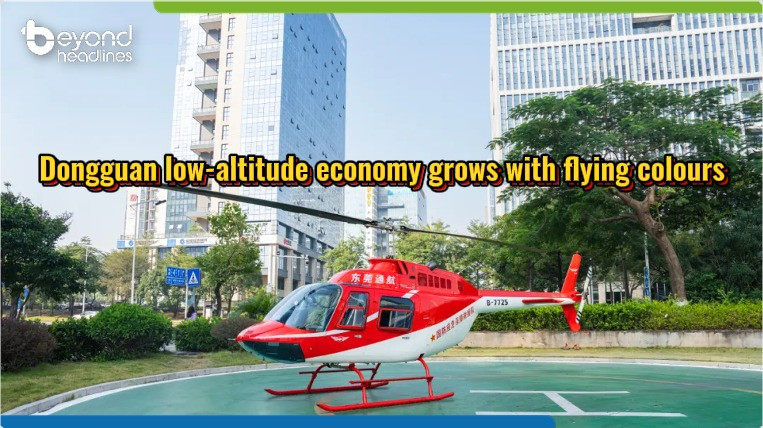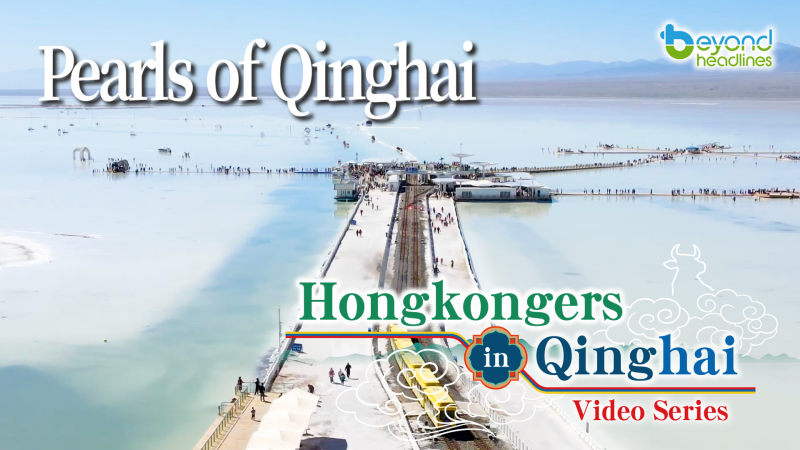After attending China’s highest level of meetings at the “Two Sessions”, CY Leung, Vice-Chairman of the National Committee of the CPPCC, shares his insights on how Hong Kong’s strengths in trading and branding can help mainland enterprises to yield high quality productivity and go international.
Q1. One of key perspectives in the government report is to develop “new quality productive forces” or enhanced productivity with high quality and innovations. What Hong Kong can do or should do to help realize this goal in the context of high quality development?
CY Leung:Hong Kong has many sectors and sub-sectors in our economy that could assist in the overall high quality development of the mainland of China. We all know that Hong Kong is an international trading centre, but not many of us, similarly not many people in the mainland of China realize how the trade sector in Hong Kong could help in the overall high quality development of the manufacturing industries in the mainland.
The ultimate objective of high quality development and high quality productivity is to achieve for the same product, the same high quality product, higher prices in bigger market so that enterprises can achieve higher profit ratios and their workers and farmers can also have higher take home pays. Hong Kong has very comprehensive, very tight, with and very dependable trade network. Internationally, we have other attributes such as language, a freely convertible currency, rule of law, etc. When we have high quality productivity and then high quality products or produce in the country, who’s best placed to ensure that these high quality products or quality goods to have a larger market share in the world, and at the same time, achieve better prices and better profits? I think that’s Hong Kong. It doesn’t have to be technology based or AI based to help release high quality productivity in the country. It could be other sector. Trade is one. Related to trade, it’s the question of branding which is a matter of design, a matter of promotion, a matter of marketing, and also a matter of setting standards and testing. The question of standards and the question of promoting the ‘made in China’ brand were also mentioned in the government report. And Hong Kong is very good at it.
Q2: Do you have any suggestion regarding how to make the best use of Hong Kong’s strengths to help mainland enterprises to go international and build Chinese brands with international influence?
CY Leung:Hong Kong has been the most international, most open and most cosmopolitan city in the whole of China. We've been such a city for 180 years without any interruption. So Hong Kong could assist as the super connector in the world between China and the rest of the world, not just in bringing people, investment, businesses and technology from other parts of the world into the mainland, but also in assisting and accompanying mainland enterprises to reach out to other parts of the world.
I think Hong Kong is singularly the only city that helps achieve internationally recognised brands for the whole country. We should try to realise what Hong Kong can do for the country and in the process to attain higher level of economic development and therefore high incomes for everyone in Hong Kong. To do this, we also need to spend more time on the mainland, calling on our prospective collaborators and partners whether they are in the tertiary sector, secondary sector or primary sector of the Chinese economy. As most of the business units in Hong Kong, whether they are professional firms or trading companies, manufacturing companies, are small to medium sized enterprises. These enterprises may not have the time energy, financial resources, to actually run around in the country identifying for themselves, opportunities on the mainland.
I believe it is up to the chambers, it is up to business associations and professional bodies to do the work for their members, which are mostly small to medium sized units. Most of our business chambers and professional bodies actually have quite well resources. I think they are duty bound to do this for their members.
Now, this ability of Hong Kong is not generally recognized on the mainland. And so I think we need to do a lot more selling of Hong Kong’s ability in this regard to our perspective mainland partners.










![[The China Venture] EP15: The Rebirth of Kowloon City](https://img.beyondheadlines.hk/articles/cover/20241115/0effb024e1ca0f1c8d5edc28928f9884.jpg!w800)
![[The China Venture] EP13: Infinite Intelligence](https://img.beyondheadlines.hk/articles/cover/20241101/343f976a69fed9a5228da6e18c9f160d.jpg!w800)
